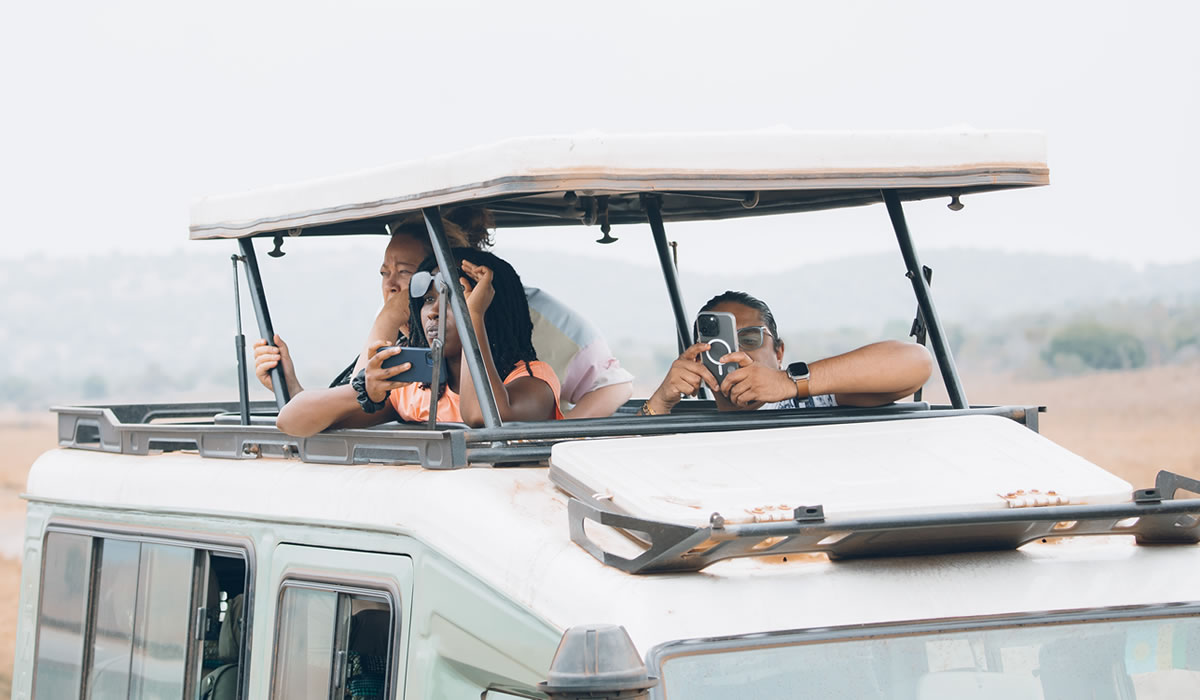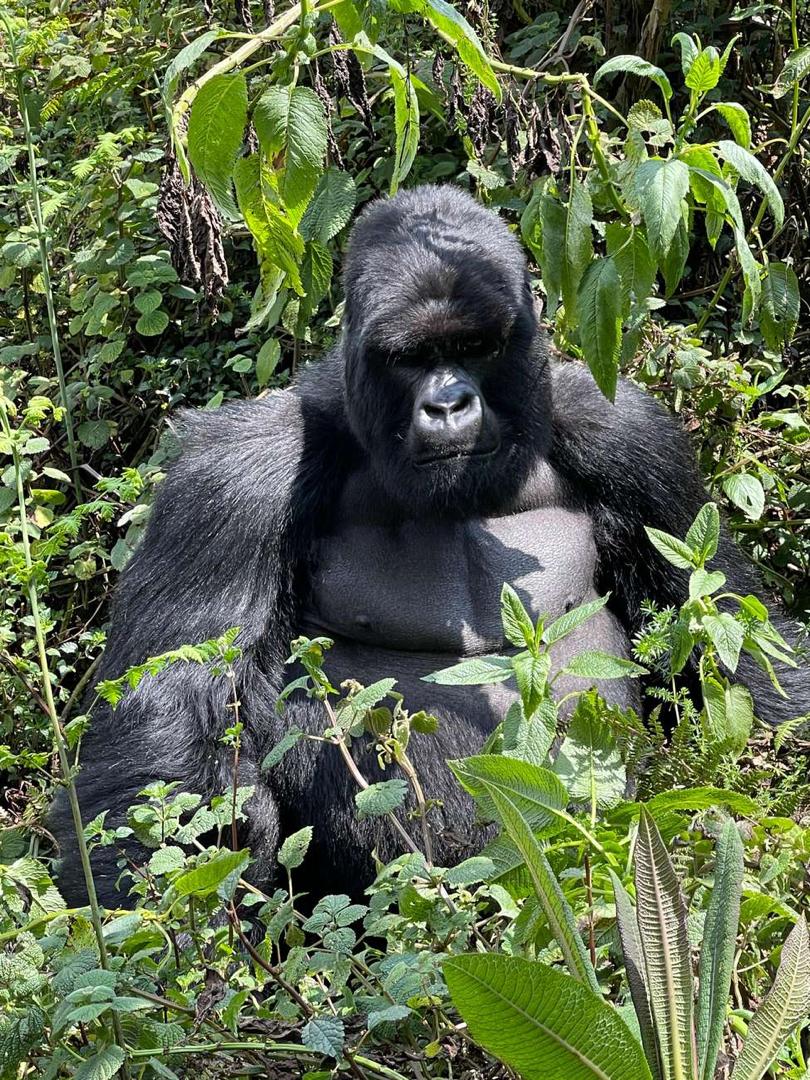One of the best gorilla tracking experiences in Uganda can be found in Bwindi Impenetrable…
How to Visit Rwanda on a Budget

Rwanda is renowned for its breathtaking landscapes, rich wildlife, and vibrant culture. While the country is often associated with luxury gorilla trekking and high-end safaris, it is also possible to experience Rwanda’s unique offerings without breaking the bank. Budget travel in Rwanda requires careful planning, smart choices, and a willingness to embrace local experiences, but it can be equally rewarding. From affordable accommodations to cost-effective transportation and dining options, there are many ways to explore this beautiful East African nation while keeping expenses manageable.
One of the most significant expenses for travellers to Rwanda is transportation, especially international flights and domestic travel. To save money, it’s advisable to book flights well in advance and look for deals on major carriers such as RwandAir or regional airlines offering promotions. Flexible travel dates often help reduce airfare costs, and connecting flights through hubs like Nairobi or Addis Ababa can also be more economical than direct international flights. Upon arrival, budget-conscious travellers can rely on public transport, shared taxis, or motorcycle taxis (known locally as “motos”) for short distances in Kigali and other cities. Public minibuses, locally called “matatus,” are another affordable option for intercity travel. Using these modes of transportation reduces costs while providing an authentic glimpse into local life.
Accommodations can vary significantly in price, but Rwanda offers options for travellers on a budget. While luxury lodges near national parks are expensive, budget hotels, hostels, and guesthouses provide clean, safe, and comfortable alternatives. In Kigali, areas such as Kiyovu, Remera, and Nyamirambo feature budget-friendly lodgings with rates significantly lower than high-end hotels. Travellers can also consider homestays in rural areas or near national parks, which offer an immersive cultural experience at a fraction of the price. Many of these accommodations provide meals, further reducing daily expenses. Booking platforms often list affordable options with reviews, making it easier to find accommodations that balance comfort and cost.
Food is another area where travellers can save money while enjoying Rwandan cuisine. Dining at local restaurants and street food vendors is far more economical than eating at tourist-oriented establishments. Traditional Rwandan dishes such as brochettes (grilled meat skewers), ibihaza (pumpkin-based dishes), and isombe (cassava leaves with peanut sauce) are widely available at low prices. Markets, such as Kimironko in Kigali, offer fresh fruits, vegetables, and snacks at very affordable rates. Preparing some meals independently, when staying in accommodations with kitchen facilities, is another effective way to reduce food expenses while trying local ingredients.
One of the most popular attractions in Rwanda is gorilla trekking, which is often considered a high-cost activity due to the expensive permits. While permits can cost several hundred dollars, budget travelers can plan carefully to minimize additional costs. Booking permits in advance ensures availability and may help secure better rates, especially during low-tourist seasons. Additionally, travellers can offset costs by combining gorilla trekking with other budget-friendly activities, such as hiking, community visits, or exploring Nyungwe National Park, where chimpanzee trekking permits are generally less expensive than gorilla permits. Group tours, rather than private tours, are also more affordable, and many operators offer packages that include transportation, meals, and park fees.
Rwanda’s national parks and nature reserves provide several budget-friendly options for wildlife and nature enthusiasts. Akagera National Park, with its savannahs, wetlands, and abundant wildlife, offers affordable game drives and self-guided options. Entrance fees are lower than in luxury safari destinations, and park accommodation ranges from campsites to mid-range lodges. Nyungwe National Park, known for its rainforest and primate diversity, also provides cost-effective hiking and birdwatching opportunities. Many trails can be explored independently or with budget-conscious guided tours, allowing travellers to enjoy Rwanda’s biodiversity without spending a fortune.
Public transport and local guides can help travellers explore cultural experiences on a budget. Kigali city tours, visits to local markets, and cultural centers can be done economically using public transport or by hiring shared guides. Visiting craft villages, interacting with local artisans, and attending traditional dance performances provide enriching cultural experiences at minimal cost. Homestays or community tourism initiatives often include cultural activities, such as cooking classes, drumming, and storytelling sessions, making them both affordable and immersive. By choosing local operators and participating in community-based tourism, budget travellers support local economies while enjoying authentic experiences.
Travellers can also save by strategically planning their itinerary to reduce unnecessary transportation costs and maximize experiences. Rwanda’s compact size allows visitors to see multiple destinations in a short period without spending heavily on transport. For instance, a budget traveller can combine Kigali city exploration with a visit to Volcanoes National Park, Lake Kivu, or Akagera National Park using shared transport or organized group tours. Efficient itinerary planning reduces costs for accommodation and travel, while ensuring that travellers experience Rwanda’s diverse landscapes, wildlife, and culture.
Another effective way to manage expenses is by taking advantage of seasonal variations. Visiting Rwanda during the low-tourist seasons, typically during the rainy months from March to May and October to November, can reduce accommodation and activity costs. While some trails may be muddy and certain areas less accessible, the lush landscapes and fewer crowds make these months appealing for budget-conscious travellers. Additionally, local operators may offer discounts or special packages during off-peak periods, allowing visitors to enjoy high-quality experiences at lower prices.
Travel insurance is an essential consideration, even for budget travellers. While it may seem like an added cost, insurance protects against medical emergencies, trip cancellations, and lost belongings. Choosing budget-friendly insurance plans that cover key risks ensures peace of mind while keeping overall travel expenses manageable. Many plans are available online and can be purchased in advance, offering coverage tailored to the activities travellers plan to undertake, such as trekking, safaris, or water sports at Lake Kivu.
For communication and navigation, budget travelers can rely on local SIM cards and mobile data packages. Purchasing a SIM card from providers like MTN or Airtel upon arrival in Kigali is affordable and convenient. Data packages are inexpensive and allow travellers to use GPS, translation apps, and online resources, reducing the need for costly roaming charges. Mobile money services also facilitate cashless payments, making it easier to manage expenses during travel while avoiding carrying large amounts of cash.
Travellers aiming to explore Rwanda on a budget should also consider group travel or shared tours. Travelling with others reduces per-person costs for transportation, guides, and accommodation. Shared tours to national parks, gorilla trekking, or cultural villages make it possible to access premium experiences at a fraction of the price of private tours. Additionally, some operators offer discounts for students, youth travellers, or large groups, further enhancing affordability.
In conclusion, visiting Rwanda on a budget is not only possible but can be an enriching and memorable experience. By planning ahead, choosing affordable accommodations, utilizing public transport, and participating in local cultural activities, travellers can experience Rwanda’s natural beauty, wildlife, and vibrant culture without overspending. Strategic itinerary planning, seasonal considerations, and participation in community-based tourism further help to manage costs while ensuring authentic experiences.
Rwanda’s compact size, efficient transport network, and diverse range of budget-friendly activities make it an ideal destination for cost-conscious travellers. From gorilla and chimpanzee trekking to city tours in Kigali, visits to local markets, cultural immersion, and affordable safaris in Akagera and Nyungwe, budget travelers can access the best the country has to offer. With careful planning, Rwanda can be explored fully while keeping expenses manageable, allowing visitors to enjoy adventure, culture, and nature without compromising on the quality of their experience.
Budget travel in Rwanda also encourages meaningful engagement with local communities. By choosing homestays, local guides, and community-led tours, travellers not only reduce costs but also contribute directly to the local economy. These interactions enhance cultural understanding, support sustainable tourism, and create lasting memories of authentic Rwandan life.
Ultimately, Rwanda proves that travelling on a budget does not mean compromising on experiences. With smart choices, flexibility, and an adventurous spirit, visitors can explore the “Land of a Thousand Hills” fully, enjoying breathtaking landscapes, rare wildlife, rich cultural traditions, and the warmth of its people. A budget-friendly Rwanda trip offers both adventure and value, demonstrating that this East African gem is accessible to travellers from all walks of life.

